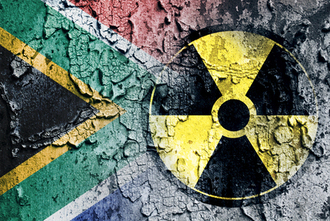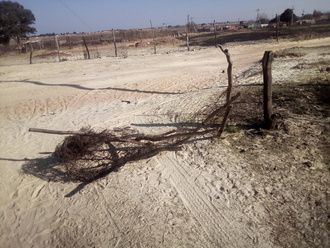- Featured
- Clean air
- Climate justice
- Consumer Rights
- Corporate Accountability
- Data access
- Early Childhood Development
- Economic fairness
- Education
- Electoral fairness
- Environmental justice
- Food justice
- Gender based violence
- Grants/social assistance
- Health
- Housing and infrastructure
- Industry interference
- Land Justice
- LGBTQIA+ rights
- Media/ information access
- Public transport
- Racism
- Reparations
- Safety
- Sanitation
- Service Delivery
- Sexual and Reproductive Rights
- Social justice
- Unemployment
- Womxn's rights/ gender equality
- Workers' rights
- More
-
Keep the landfills open to protect our city and the environmentAccording to Pikitup, by this time next year, all four of its functioning landfills will be closed. Its solution? Pay R68 million in the 2025/25 year alone, to send the city’s waste to private landfills and enter public-private partnerships to build an incinerator and a mega landfill. This will put thousands of landfill reclaimers out of work, cause significant environmental harm, and leave the city drowning in its own waste. As residents, we say no to opting for environmental and social injustice. Pikitup and the City of Johannesburg created this crisis. The 2011 City of Johannesburg Integrated Waste Management Plan noted the looming closure of the city’s landfills and highlighted the urgent need for projects to increase the capacity of existing landfills, implement separation at source to divert recyclables from landfills, and build new landfills. Instead, it delayed projects to increase capacity at the landfills, took no action to build its own new landfills, and continues to pursue ineffective and expensive separation at source by cooperatives and private companies. No one wants a mega landfill beside their home. If Pikitup does find a place for a mega landfill, it will be far from where people live, increasing diesel costs and causing great environmental harm. The reclaimers who have worked so hard for many years to keep our landfills open cannot just be thrown away like trash. Their organisation, ARO, has implemented highly effective, environmentally sustainable separation at source projects that do not require reclaimers to form cooperatives. A recent ARO reclaimer led 18-month programme, ending June 2025, indicates that 945 reclaimers in Johannesburg collected 46 000 tonnes of recyclables that have been successfully diverted from landfills. ARO has solutions to avoid the double social and environmental crisis that will result from Pikitup and the City’s plans. As such ARO demands Pikitup and the City if Johannesburg to: - Have a participatory policy process including ARO, residents, and environmental experts to develop other sustainable solutions to avoid privatisation of landfills; - Urgently implement projects to move the drainage pond at Marie Louise landfill and purchase adjacent land to extend its lifespan; - Implement similar projects at all other landfills; - Negotiate social plans for landfill reclaimers so that they can continue to salvage and sell residents’ recyclables through reclaimer-run separation at source programmes; - Implement reclaimer-led separation at source across the city to reduce the need for new landfills; and - Sign the formal partnership agreement with ARO that has been languishing at Pikitup Head Office for years.318 of 400 SignaturesCreated by Eli Kodisang
-
We urge ArcelorMittal SA to publish their Exit PlansArcelorMittal South Africa is one of the largest steel producers in the world and among the oldest to have caused harm in communities near its large steel mill. Therefore, we expect them to address the harm they have caused and ensure that no further damage occurs to the communities they operate in after their exit. According to the National Environmental Management Act and other trade legislative frameworks, a plant of the industrial magnitude of AMSA plants in this case is required by law to exit properly, undergo rehabilitation, and carry out outstanding compensations, which will include proper compensation of workers and ensuring that they do not leave the communities they are in in industrial ruin[4]. VEJA is seeking public support to demand proper Exit Plans from ArcelorMittal SA, ensuring Restorative Justice at all costs. ArcelorMittal Group makes billions of dollars annually without supporting its operations in the Global South, even though it has invested in better technologies to meet international standards and comply with the Corporate Sustainability Due Diligence Directive. We call on the giant corporation to act voluntarily and adhere to international standards. If ArcelorMittal SA closes down, let them do so by the law. If enough of us sign this petition, we can put enough pressure on Arcelor Mittal to commit to publishing its exit plans. References 1. ArcelorMittal South Africa says on course to close long steel plants in September by Engineering News, 31 July 2025 https://www.engineeringnews.co.za/article/arcelormittal-south-africa-says-on-course-to-close-long-steel-plants-in-september-2025-07-31-1 2. Just Transition Framework by the Department of Treasury, https://pccommissionflo.imgix.net/uploads/images/22_PAPER_Framework-for-a-Just-Transition_revised_242.pdf 3. Activists push dirty steel giant ArcelorMittal SA to stop pollution and accelerate transition to green steel by Centre for Environmental Rights, 12 May 2022 https://cer.org.za/news/activists-push-dirty-steel-giant-arcelormittal-sa-to-stop-pollution-and-accelerate-transition-to-green-steel#:~:text=ArcelorMittal%20South%20Africa%20(AMSA)%20remains,finance%20even%20their%20mediocre%20commitments. 4. National Environmental Management Act https://www.gov.za/sites/default/files/gcis_document/201409/a107-98.pdf67 of 100 Signatures
-
Save our indigenous trees from mining!An organisation called Living Limpopo is working to challenge this mega project. They have launched an inquiry into the legal status of the North Site of the MMSEZ, and will continue to monitor the licensing of protected tree destruction at all sites of the SEZ and the planned new coal mines. They opposed the approval of the Water Use License, the Township Establishment and are participating in the Environmental Impact Assessment process and emissions licence applications for the ferrochrome smelter, coal washery and coking plants at the MMSEZ South Site. The judicial review case brought in December 2022 by Living Limpopo, CALS and others against the decision to grant environmental authorisation for site establishment at the South Site, is still pending. All Rise will be in an unopposed hearing in the Polokwane High Court on 6 December to finally determine issues relating to the record of decision Various farmers and indigenous communities are busy fighting this legislation. Our only duty as members of amandla.mobi is to give them the strength and support needed to advance this and protect tourism in Limpopo. Please add your name to the petition to protect our rich fauna and flora. We need to protect the ecology, biodiversity and heritage of areas in South Africa that are rich in these. References [1] Mining permits threaten Limpopo's ecosystems and agriculture. FoodforMzansi, 29 November 2024. https://www.foodformzansi.co.za/mining-permits-threaten-limpopos-ecosystems-and-agriculture [2] Thousands of Boabab trees are to be bulldozed in Limpopo by Barry Viljoen for The Citizen. 25 November 2024. https://www.citizen.co.za/network-news/lnn/article/thousands-of-baobab-trees-to-be-bulldozed-in-limpopo/ [3] Thirsty, energy-hungry steel 'monster' set to destroy thousands of Limpopo protected trees in industrial drive by Tony Carnie for the Daily Maverick. 14 November 2024. https://www.dailymaverick.co.za/article/2024-11-14-thirsty-energy-hungry-steel-monster-set-to-destroy-thousands-of-limpopo-protected-trees-in-industrial-drive2 of 100 SignaturesCreated by Masedi Maponya
-
End the Double Standards: Ban Deadly Pesticides Already Banned in EuropeThe Double Standards Pesticides Campaign calls on the South African government to ban all HHPs that have already been banned in the EU. The Campaign is important because tens of thousands of South African farm workers are impacted by exposure to these HHPs as they are often forced to work in vineyards and orchards while pesticides are being sprayed, and without the necessary personal protective equipment (PPE). This has resulted in the health of many farm workers being adversely and irreversibly impacted, affecting their quality of life and ability to work. South African farm workers and dwellers need your support to exert pressure on Minister Steenhuisen to ban all HHPs already banned in the EU, in order to protect their health and wellbeing.3,352 of 4,000 SignaturesCreated by Women on Farms Project
-
Mayor finish building the Nogqala bridge in NgcoboWe have been promised the bridge for the past 20 years, but not having the bridge is affecting us as residents, children are unable to get to school when it rains they are forced to only return to school in May after the rainy season, which impacts their schooling. High school learners are even forced to rent places closer to the school just so they are able to attend classes [2] We can’t go to the clinic to get treatment, we can't go to town. It's worse when someone passes on, we are forced to carry the coffin for a very long distance because we can't cross that river it's too dangerous. The river has claimed many lives and the delays by the municipality continue to threaten us as the community of Noqgala [3], if you add your name to this petition you can help us get the municipality to hear our cries we are tired of being ignored, 20 years is a long time and we need clear plans and a timeline of when will the bridge be completed. References [1] https://groundup.org.za/article/r97-million-spent-and-three-years-later-still-no-bridge/ [2] https://www.dispatchlive.co.za/news/2023-06-19-r10m-and-two-years-but-villagers-still-without-bridge/#google_vignette [3] https://youtu.be/XoMGTfRhokU68 of 100 SignaturesCreated by Thabisile Miya

-
Say No to Nuclear Plans in Thyspunt by 31 July 2021South Africans have until 31 July to say no to a Nuclear Installation Site Licence (NISL) application. Late last year we objected to the building of a new nuclear plant at Duynefontein near the existing Koeberg Nuclear Power Plant. Now Eskom has applied for yet another new site license for Thyspunt, located in the Eastern Cape, to the National Nuclear Regulator (NNR) Board. South Africa cannot afford and doesn't need [1] unsafe [2] and unnecessary nuclear power. Object to Eskom’s plans before it’s too late. Nuclear power is dangerous, unhealthy and costly. Nuclear plants – big or small – are very expensive to set up, often with cost overruns and construction delays. The cost of the decommissioning of these plants is also prohibitively costly. As history has taught us, new nuclear procurement is where large scale corruption can, and has, taken place. In this instance, little to no information has been provided to the public on the cost and feasibility of new nuclear energy. Transparency is needed to build back public trust after past illegal and unconstitutional nuclear deals. Nuclear power is not needed for our energy grid now or in the future. Especially during the Covid-19 crisis, we should not be looking at procurement of one of the most expensive forms of energy. The most recent Energy plan, IRP 2019, does not show the necessity for the procurement of nuclear energy. Also no-one can guarantee 100% safety with nuclear energy. Radiation and radioactive waste created at nuclear power stations are extremely toxic. More nuclear power could put the health of workers – most-likely younger people – and communities close to the plants at risk. Consider what Electrical Engineer Hilton Trollip points out, “We absolutely do not need Koeberg to avoid load shedding. There are documented and proven sustainable electric systems that can run very well without nuclear and even without coal.” We should instead move toward a just energy transition, investing in and supporting renewable energy sources. Not only is RE able to create a more inclusive energy landscape – giving formerly-excluded communities more of a chance to be part of the economy – the risks associated with RE are significantly less. References: https://ewn.co.za/2017/04/26/western-cape-high-court-rules-sa-nuclear-deal-unlawful-and-unconstitutional https://theconversation.com/why-decommissioning-south-africas-koeberg-nuclear-plant-wont-be-easy-89888#:~:text=The%20potential%20cost%20of%20decommissioning,UK%20model%20at%20R76%20billion https://www.iol.co.za/news/south-africa/western-cape/safety-concerns-over-koeberg-nuclear-plant-as-cape-town-tremors-grow-in-intensity-74d7b088-2840-41ee-a8a7-a40fa83451ee1,371 of 2,000 SignaturesCreated by SAFCEI

-
Stop Johannesburg's R50 recycling fee that threatens reclaimers' livelihoodStarting from 1 July, residents living in houses worth more than R350 000 could potentially pay a R50 “recycling fee” if the City of Johannesburg’s proposed waste management tariff is approved. The City said that the R50 additional levy will go to Pikitup to extend a separation at source (S@S) programme which has already been piloted in a few suburbs in Johannesburg. The City places the bill at the feet of “affluent” residents to extend the S@S pilot programme yet provides no research or statistics to support it. Residents are expected to buy into a system they know nothing about despite having very little trust in the government to provide services and use the money for its intended purpose. Not only does this recycling fee raise more questions and concerns for residents, it is a grave threat to the livelihood of reclaimers who depend on the collection of recyclables for their daily living. The extension of this project will decrease reclaimers’ access to bins which will significantly decrease their income. Reclaimers collect between 80 - 90 % of used packaging collected for recycling, saving municipalities millions of rands per year. The contribution of reclaimers cannot be overlooked or underestimated. There are alternatives to the City's proposal. As African Reclaimers Organisation (ARO), we have been piloting our own S@S programme, where we work directly with residents in Brixton and Auckland Park who separate materials for us. Instead of destroying our jobs, Pikitup should expand our pilot across the city. We call on residents to: 1. Sign this petition to stop the recycling fee and protect reclaimers’ jobs 2. Object to the recycling fee by completing this IDP comment form: https://share.hsforms.com/1xa2Cg-qnRxajkHAoDwsivw469tl (deadline is 8 May 2021) 3. Get in contact with ARO on Facebook/ Instagram or email to see how we can develop a resident-reclaimer S@S programme in your area No recycling without reclaimers! Social media: @africanreclaimers Email: [email protected]3,728 of 4,000 SignaturesCreated by Eli Kodisang
-
Call on SA Government to Back Mass Farmer Strike in India!Since the 26th of November 2020, tens of thousands of farmers have camped near the border of New Delhi, the Indian capital. On that day, an alliance of national trade union federations called a nationwide strike which converged with a march on Delhi by the All India Kisan Sangharsh Co-ordination Committee (AIKSCC), a united front of over 250 farmer organisations. Large parts of the country came to a halt as direct action was undertaken. Protesting farmers were met with unacceptable police brutality - blockades, teargas, baton charges and water cannons - in a bid to prevent them from reaching the centre of Delhi. In South Africa we are all too familiar with the use of brutal police tactics to suppress popular protest and we condemn the use of these tactics against our comrades in India. The striking farmers have declared that they will not return home and the strike will not cease until the agriculture laws are repealed entirely. They will not be moved and we salute their resolve. India’s agriculture industry employs more than half of its population of nearly 1.4 billion people. The country is in the middle of an unprecedented economic decline, experiencing the worst recession in nearly 30 years. Socio-economic inequality is staggering. As South Africans we are also aware of how closely-linked unemployment and socio-economic inequality is to hunger. India’s new agriculture laws were passed despite a lack of consultation with agriculture experts and the leaders of farmer organisations. These laws threaten the acquisition of produce by state-run organisations at a fixed Minimum Support Price. What this means is that small producers have little bargaining power in the free market system and fear that large corporations will take advantage of this, forcing farmers to sell their produce at a lower price than the price which had previously been guaranteed to them by the government. The laws come at a time where there is increasing conflict and disagreement between farmers and the state, on account of the government turning a blind eye to farmers’ demands for better crop prices, additional loan waivers and irrigation systems to guarantee water in times of drought. They are also framed by the horrific numbers of Indian farmers who have been driven to suicide by debt. All of this is happening within the context of carbon capitalism which is putting the future of humanity in jeopardy and exposing the most vulnerable among us to the effects of the climate crisis. In South Africa, in India and across the world, corporations are not the solution – they are part of the problem. The methods of small scale farmers across the world will not only feed the people, but will also build resilience in the face of the climate crisis. The protection of the knowledge and practices of indigenous communities at the forefront of this movement is also paramount. In the face of oppression and systems of exploitation that stretch across borders, it is necessary for us to globalize resistance and join hands to push back against oppressive policies which threaten the lives of the most vulnerable. Amandla! Inquilab Zindabad!172 of 200 SignaturesCreated by South Africans Against Fascist India

-
Say No to Nuclear Energy plans by 5th FebruaryNuclear power is dangerous, unhealthy and costly. We should instead move toward a just energy transition, investing in and supporting renewable energy (RE) sources. Not only is RE able to create a more inclusive energy landscape – giving formerly-excluded communities more of a chance to be part of the economy – the risks associated with RE are significantly less. Nuclear plants – big or small – are very expensive to set up, often with cost overruns and construction delays. There are a number of reasons to create a groundswell of opposition against nuclear for South Africa’s energy mix. 1. As history has taught us, new nuclear procurement is where large scale corruption can, and has, taken place. In this instance, little to no information has been provided to the public on the cost and feasibility of new nuclear energy. Transparency is needed to build back public trust after past illegal and unconstitutional nuclear deals. 2. Nuclear power is not needed for our energy grid now or in the future. Especially during the covid crisis, we should not be looking at procurement of one of the most expensive forms of energy, but rather investment in more critical areas of need such as vaccines, education and employment. 3. The most recent Energy plan, IRP 2019, does not show necessity for the procurement of nuclear energy. Also no-one can guarantee 100% safety with nuclear energy. Radiation and radioactive waste created at nuclear power stations are extremely toxic. More nuclear power could put the health of workers – most-likely younger people – and communities at risk. Consider for a moment what Electrical Engineer Hilton Trollip points out, “We absolutely do not need Koeberg to avoid load shedding. There are documented and proven sustainable electric systems that can run very well without nuclear and even without coal.” Why then, is our government not more serious or committed to the #JustEnergyTransition? Nuclear is not the long-term solution South Africa needs to resolve the energy crisis, and it certainly will do much less for the economy than renewable energy. References https://ewn.co.za/2017/04/26/western-cape-high-court-rules-sa-nuclear-deal-unlawful-and-unconstitutional https://theconversation.com/why-decommissioning-south-africas-koeberg-nuclear-plant-wont-be-easy-89888#:~:text=The%20potential%20cost%20of%20decommissioning,UK%20model%20at%20R76%20billion https://www.iol.co.za/news/south-africa/western-cape/safety-concerns-over-koeberg-nuclear-plant-as-cape-town-tremors-grow-in-intensity-74d7b088-2840-41ee-a8a7-a40fa83451ee1,231 of 2,000 SignaturesCreated by SAFCEI

-
Stop another nuclear plant. Send your objectionNo one can guarantee that nuclear power stations are 100% safe. Radiation and radioactive waste created at nuclear power stations are extremely toxic and linked to different cancers and severe health issues [1]. Former workers of the Pelindaba Nuclear Research Facility were exposed to radiation and chemicals. Many have died from cancer while waiting for compensation [2] [3] [4]. More nuclear power could put the health of workers and communities at risk. Eskom’s own study showed that new nuclear power was “both unnecessary and costly” [5]. Electrical Engineer Hilton Trollip has also pointed out that “We absolutely do not need Koeberg to avoid load shedding. There are documented and proven sustainable electric systems that can run very well without nuclear and even without coal” [6]. https://www.youtube.com/watch?v=1L8m5odIxt4&feature=youtu.be In 2017 the Department of Environmental Affairs granted Eskom permission to build a new nuclear power station near Koeberg. But thanks to the work of activists and organisations like Earthlife Africa, the Southern African Faith Communities’ Environment Institute (SAFCEI) and Greenpeace, an appeal was launched to try to reverse this decision by the Department of Environmental Affairs [7]. This slowed down Eskom's nuclear plans. We only have until this Sunday 15 November to submit comments objecting to the departments Environmental Impact Assessment, which gave Eskom permission to build a new nuclear power station. If enough of us send in emails in support of the appeal, the Minister of Environment may have no choice but to listen to us, and put our people's health and safety first. [1] Health Risks from Exposure to Low Levels of Ionizing Radiation: BEIR VII Phase 2 (2006) National Research Council (US) Committee to Assess Health Risks from Exposure to Low Level of Ionizing Radiation. Washington, D.C. : National Academies Press, c2006 [2] Apartheid’s Nuclear Shame. Mandy de Waal and Jon Pienaar for Ground Up 27 June 2014 [3] Nuclear Energy Impact in South Africa: public hearings https://pmg.org.za/committee-meeting/9013/ [4] When all hope finally fades away. Sheree Bega for Independent Online 23 June 2018 [5] Eskom’s latest work on energy policy plan rejects nuclear. Chris Yelland News 25 November 24 2017 [6] Is the government prepared to prevent a nuclear disaster? Bizcommunity 8 October 2020 [7] The Appeal Authority: The Honourable Minister of Environmental Affairs. Authorisation Registration Number (12/12/20/994) http://safcei.org/wp-content/uploads/2018/03/5-March-2018-ELA-JHB-Greenpeace-Africa-SAFCEI-Nuclear-1-Appeal-Annexures-A-J.pdf1,055 of 2,000 SignaturesCreated by amandla mobi member

-
Cheap rent for the rich? Object to the Rondebosch Golf Course leaseCape Town is the most spatially divided city in the country - it is still separated along race and class lines. The City has consistently blamed this spatial injustice on the lack of well-located land that could be used for affordable housing. But the City often misses the most obvious solution: It already owns massive pieces of land in well-located areas. Land that is unused or not being used to its full potential, that could provide ample space for affordable housing and reverse the City’s apartheid legacy. Last year, Ndifuna Ukwazi released a research report exposing how the City is disposing of the public land it owns by leasing it to private organisations at massively discounted rentals [3]. This land includes parking lots that are empty for up to 18 hours a day, bowling greens with very few members, and massive golf courses that provide enjoyment to only a few wealthy residents on the weekends. This is an inefficient, exclusive and unsustainable way to deal with well-located public land. Surely this land should be put to better use? If we are serious about addressing Cape Town’s apartheid legacy, we need to make our voices heard. Object to the lease renewal of 45,99 hectares of prime public land that should be used for affordable housing before 9 March 2020. The experts at Ndifuna Ukwazi have put together this progressive submission you can use when sending in your own objection. If enough of us send in our objections we can stop the City of Cape Town from renewing the Rondebosch Golf Club lease. [1] Cape Town’s course of injustice: Subsidising the rich to exclude the poor, Michael Clark for the Daily Maverick January 28 2020 [2] https://rondeboschgolfclub.com/membership [3] Ndifuna Ukwazi: Cape Town’s failure to redistribute land https://drive.google.com/file/d/1Pxly1G47qbC79l58Oss4vKvvK4AO71M-/view1,247 of 2,000 SignaturesCreated by Ndifuna Ukwazi

-
We demand the department of mineral resource to rehabilitate the tailing dump of snake park sowetoThe tailing dump contains highly radioactive chemicals like uranium, which can break down into radon gas. This can cause lung cancer , miscarriage and organ failure. our community is exposed to this radioactivity everyday giving us a short life span. Mbali Zulu a 35 year old woman she is a mother who gave birth to a child with cerebral palsy, her child was born with deformities and mental disorder. Her child cannot talk or take her self to the toilet ,she has to buy nappies for the rest of her life. She took her child for adoption because she only survives with grant money and it was not enough for her and the baby.[2] They are many children with cerebral palsy in our community .This is because if a pregnant woman swallows or breathes in radioactive materials , these may be absorbed into her blood stream. from the blood they may pass to the umbilical cord or near the womb and expose the fetus to radiation.[3] Many children are inclined to show symptoms of asthma like having a wheezing chest along with a running nose. The is a higher prevalence of asthma symptoms ( 21,9% and 32,9%) compared to the studies of Vusimuzi (south african national medical research council) [4] Durban roodepoort deep mine began operations more than a century ago in 1895. DRD gold mine sold the tailing dump to mintails limited mine in 2007. Mintails limited assumed full responsibility for its environmental management and rehabilitation. At that time the dump infrastructure was sound and fully contained it did not cause any pollution. In 2010 mintails limited did not maintain the dump, its infrastructure began to fail. Dust and water effluent began to occur. Because mintails limited is now liquidated. It is now within the powers of the department of mineral resource to allow and direct for the rehabilitation of the tailing dump in snake park soweto. [1] water research commission report no 100/02/03 (guidance for rehabilitation of contamination of gold tailing dam foot print) [2]https://youtu.be/0xIVCeIFmLw [3] bench-marks.org [4]www.theconversation.com [5]james duncan/adviser james [email protected]108 of 200 SignaturesCreated by Thokozile mntambo
.png)
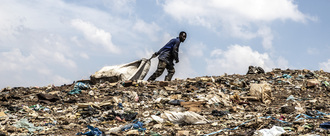
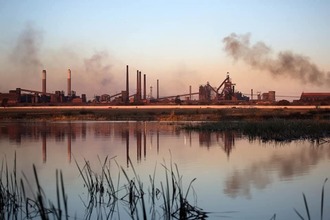
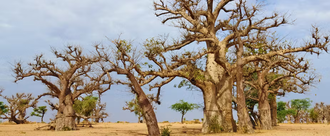
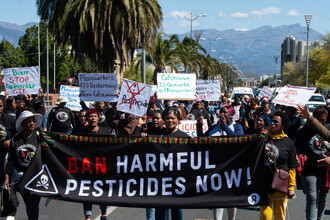
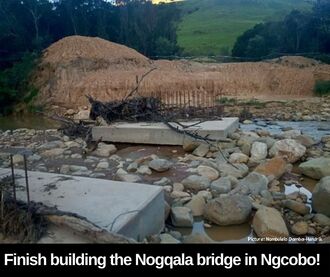.jpg)
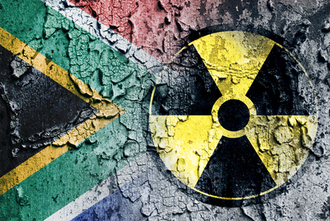.jpg)
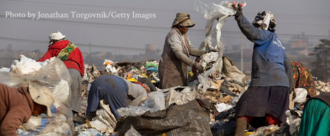.png)
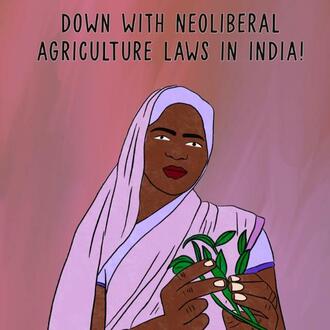.jpg)
